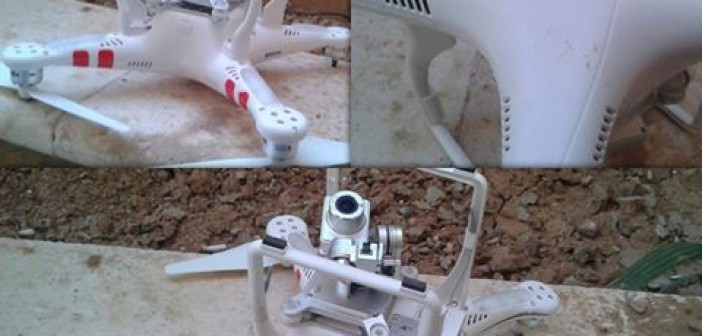Syrian Republican Guard Downs ISIL Reconnaissance Aircraft in Deir Ezzor

The Syrian Arab Army’s 104th Airborne Brigade of the Republican Guard has downed an ISIL reconnaissance aircraft that was seen flying over the Industrial Quarter of Deir Ezzor City on Tuesday morning.
With only the ability to fly for a short duration, the reconnaissance aircraft was seen circling around the Industrial Quarter before it was downed by the 104th Brigade soldiers entrenched in this area of Deir Ezzor.
According to a military source in Deir Ezzor, the reconnaissance aircraft was identified as the Chinese manufactured “P-2 Phantom Quadcopter”; it possesses an internal GPS system, a 14 megapixel camera, and the ability to fly 60 kilometers per hour when in service.
The Quadcopter used by ISIL was likely purchased legally over the internet, as the manufacturer sells his small aircrafts directly to the public.







